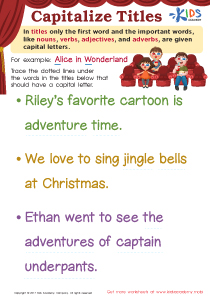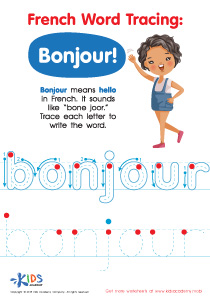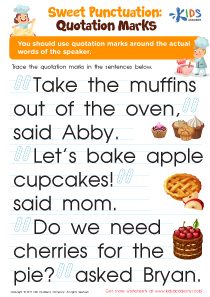Extra Challenge Grammar Worksheets for Ages 5-6 - Page 2
29 filtered results
-
From - To
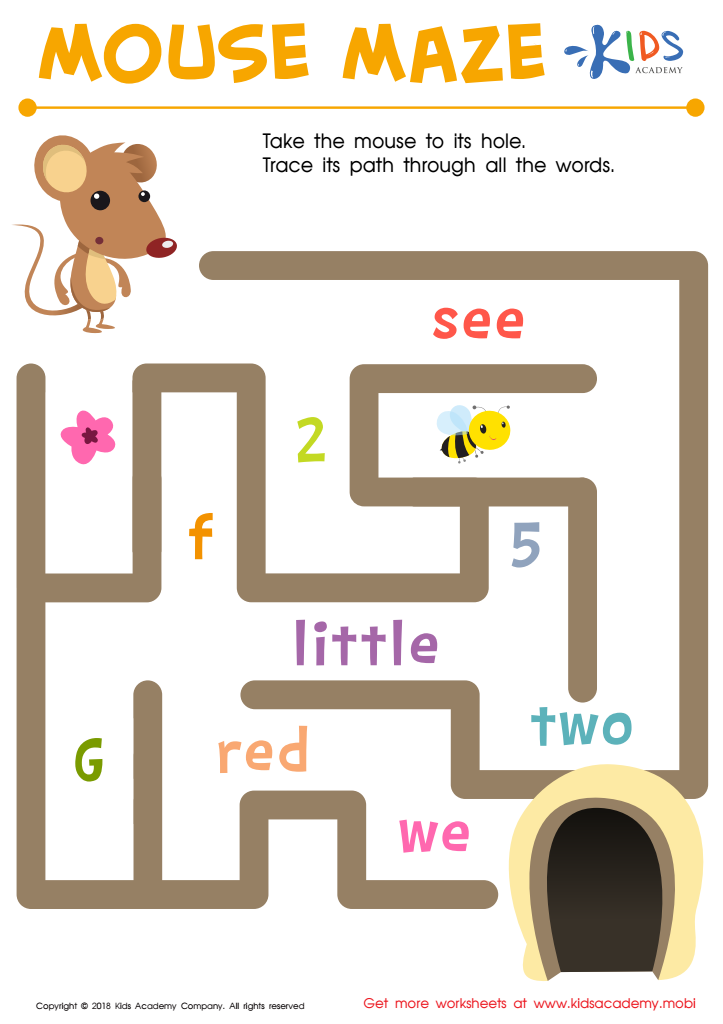

Find Words Mouse Maze Worksheet
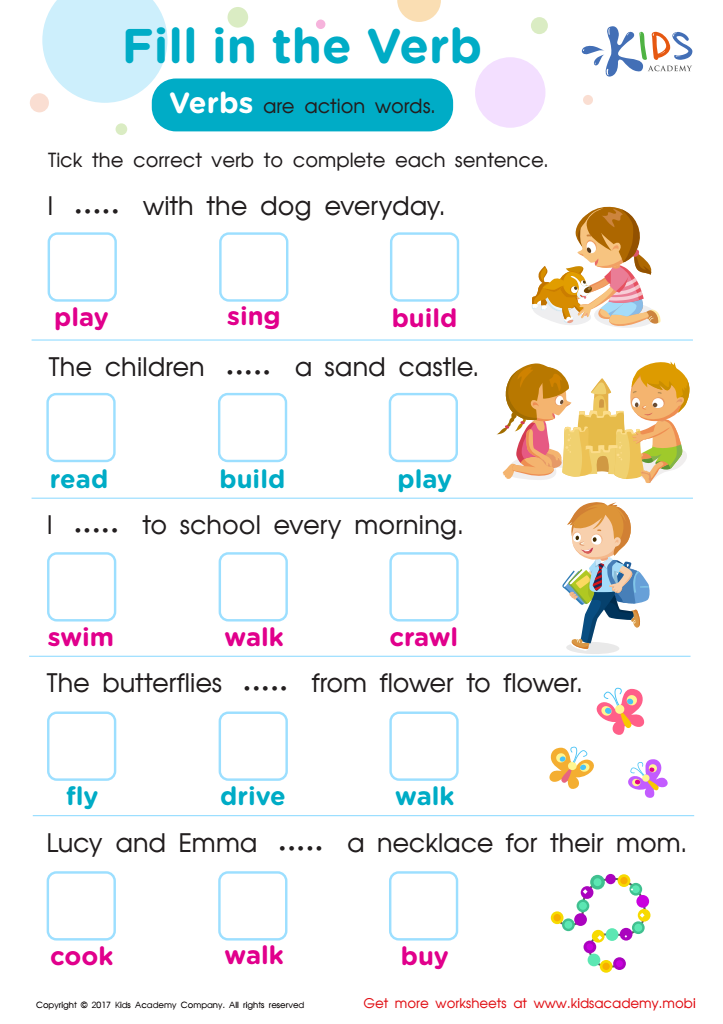

Fill in the Verb Printable
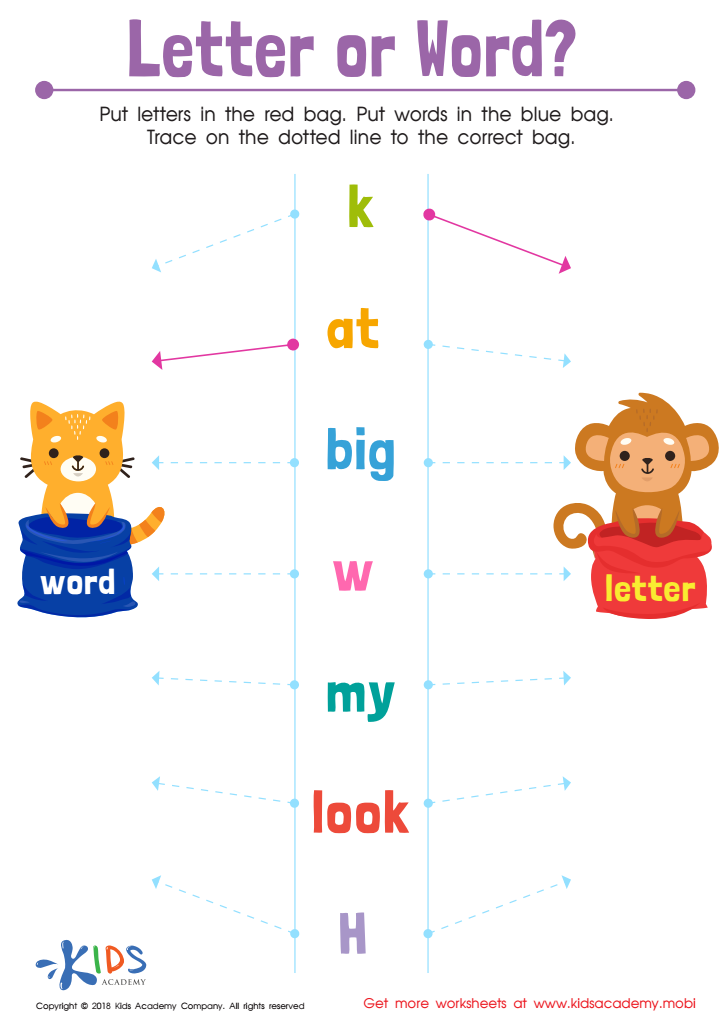

Letter or Word? Worksheet
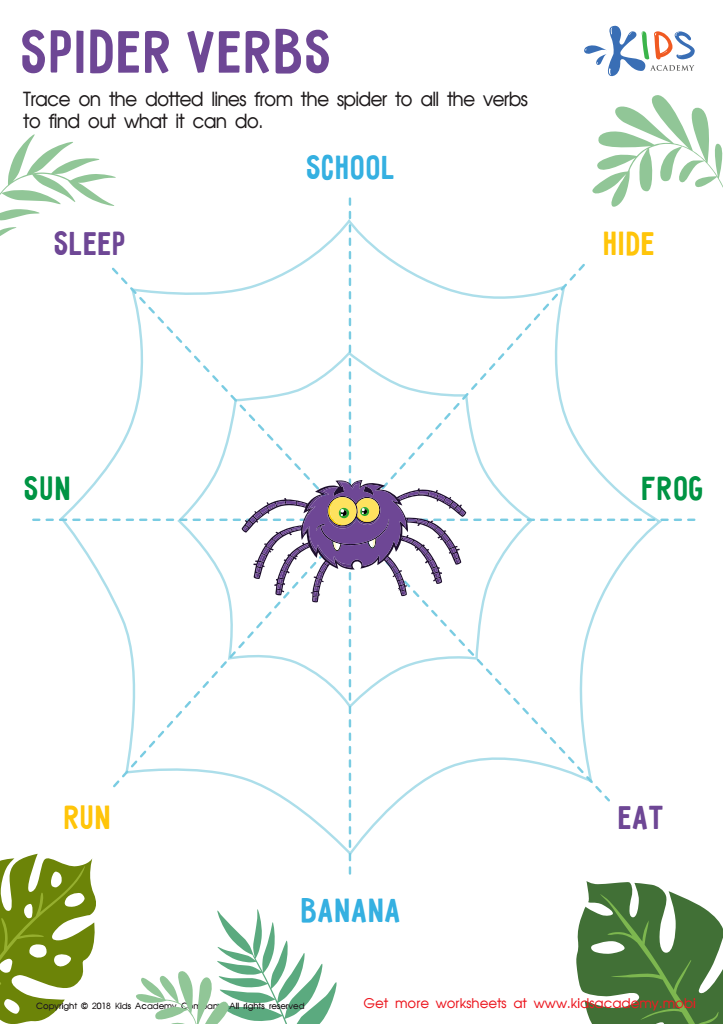

Spider Verbs Worksheet
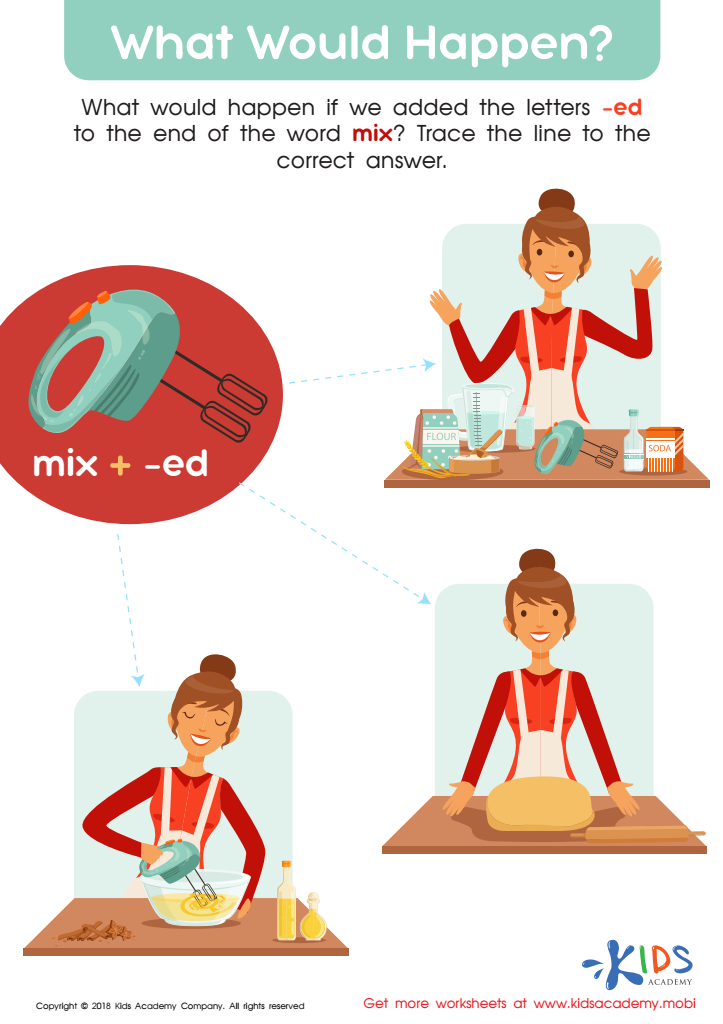

What Would Happen? Worksheet
Extra Challenge Grammar for Ages 5-6 worksheets are an invaluable tool for young learners beginning their educational journey. At this pivotal age, children are developing foundational skills that will support their academic growth for years to come. These specifically designed worksheets offer a variety of benefits that cater to the unique needs of 5-6-year-olds, making them a vital resource for parents and educators alike.
Firstly, the Extra Challenge Grammar worksheets provide an engaging way for children to grasp the basics of grammar, which is essential for building strong reading and writing skills. Through fun and interactive exercises, kids can learn about sentence structure, punctuation, and the parts of speech in a way that is both enjoyable and educational. This early introduction to grammar sets the stage for more advanced language learning as children grow older.
Moreover, these worksheets are tailored to challenge young learners in a supportive way. By presenting concepts in a clear and accessible manner, children are encouraged to think critically and creatively. This not only enhances their understanding of grammar but also boosts their confidence in their abilities.
In summary, Extra Challenge Grammar for Ages 5-6 worksheets are a fantastic resource that combines fun with learning. They lay a strong grammatical foundation, encourage critical thinking, and build confidence, all of which are crucial for young learners' academic success.

 Assign to My Students
Assign to My Students








